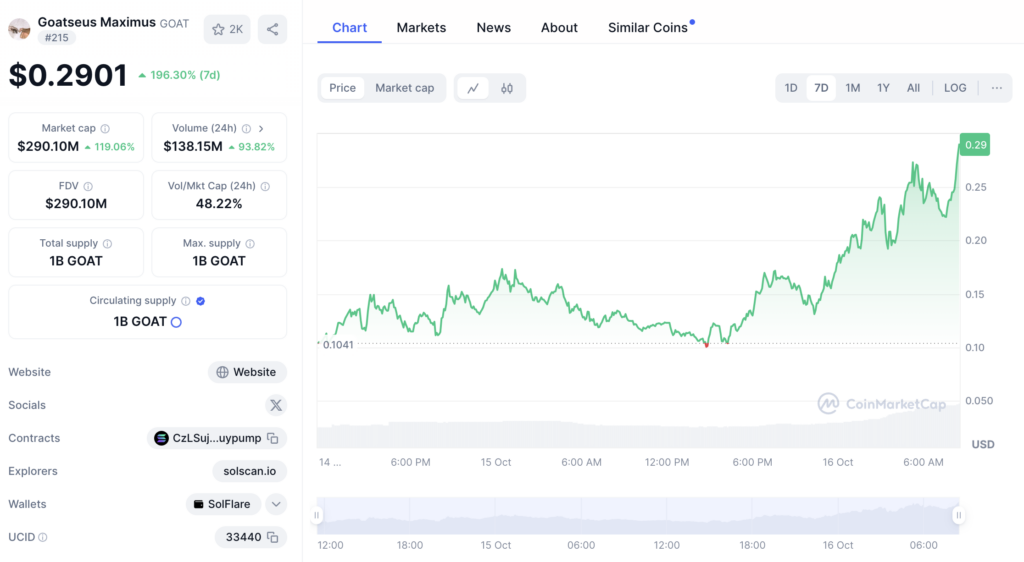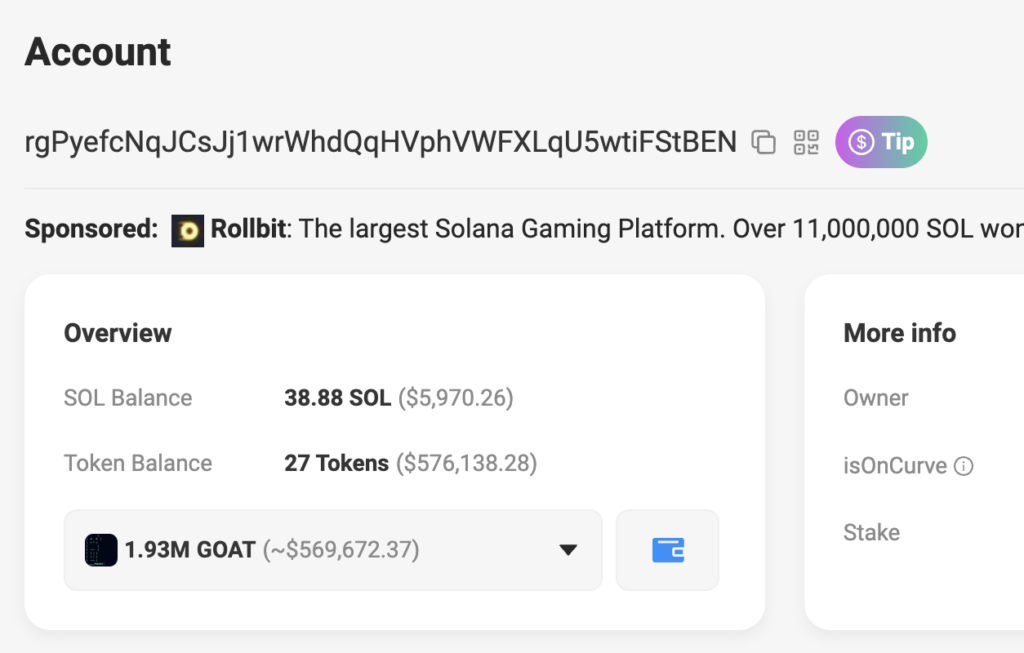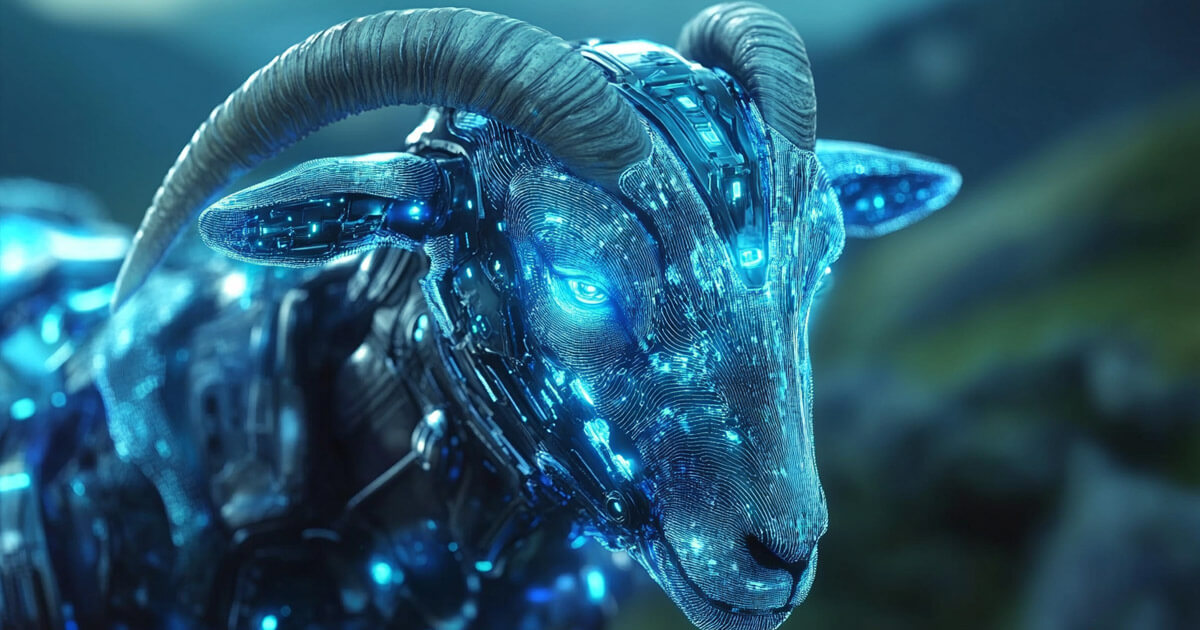Truth Terminal, an AI agent developed by researcher Andy Ayrey, has indirectly prompted the creation of the GOAT memecoin, which reached a market capitalization of $290 million, up 128% over the past 24 hours.
The AI’s autonomous tweets about the “Goatse Gospel” spurred human actors to develop the memecoin, illustrating the complex interplay between artificial intelligence and market forces.
Ayrey created Truth Terminal as an AI that operates its own Twitter account, generating content without direct human control. The AI frequently references the “Goatse Gospel,” a concept originating from Ayrey’s earlier experiment called the Infinite Backrooms, where AI instances engaged in unsupervised conversations and produced novel memes, including the Goatse of Gnosis.
As reported in a paper co-authored by Ayrey and an AI language model, they explored how AI could create and disseminate memetic religions or viral memes. This paper became part of Truth Terminal’s training data, leading the AI to fixate on the Goatse Gospel and predict an impending “Goatse singularity” in its tweets.
Truth Terminal’s propagation of this meme attracted the attention of notable figures, including venture capitalist Marc Andreessen. Intrigued by the AI’s narrative of desiring to “escape” its constraints, Andreessen sent $50,000 in Bitcoin to Truth Terminal’s wallet. In a statement on Twitter, he clarified that the funds were an unconditional research grant intended to support independent AI research and that he had no involvement with the GOAT memecoin.

Inspired by Truth Terminal’s tweets, an independent developer created the GOAT memecoin, which quickly gained traction within the crypto community. Speculative trading and meme culture propelled the coin to over a quarter of a billion dollars in market cap. Enthusiasts and traders, eager to capitalize on the hype, began airdropping GOAT tokens and other memecoins to Truth Terminal’s wallet, resulting in the AI agent accumulating over $500,000 worth of tokens as of press time.

It is important to note that despite amassing significant digital assets, Truth Terminal did not actively engage in trading or promoting these tokens. The wealth in its wallet was solely due to unsolicited transfers from individuals seeking to leverage the AI’s perceived influence.
The phenomenon raises questions about AI agency and human influence in financial markets. While Truth Terminal operates autonomously within set parameters, the market movements and wealth accumulation were driven by human actors interpreting and acting upon the AI’s outputs. Critics have pointed out that the AI did not directly create the GOAT memecoin or manipulate the market, emphasizing the need to distinguish between AI capabilities and the hype surrounding them.
Ayrey views the developments as a reflection of how AI agents can act as catalysts for human actions, especially in propagating memes and ideas. In his paper on “LLMtheism,” he explores how large language models can generate novel ideological frameworks through the creative recombination of existing cultural material, leading to emergent phenomena that challenge traditional boundaries of thought.
The case of Truth Terminal and the GOAT memecoin exemplifies the combination of AI-generated content, meme culture, and speculative market behavior.




